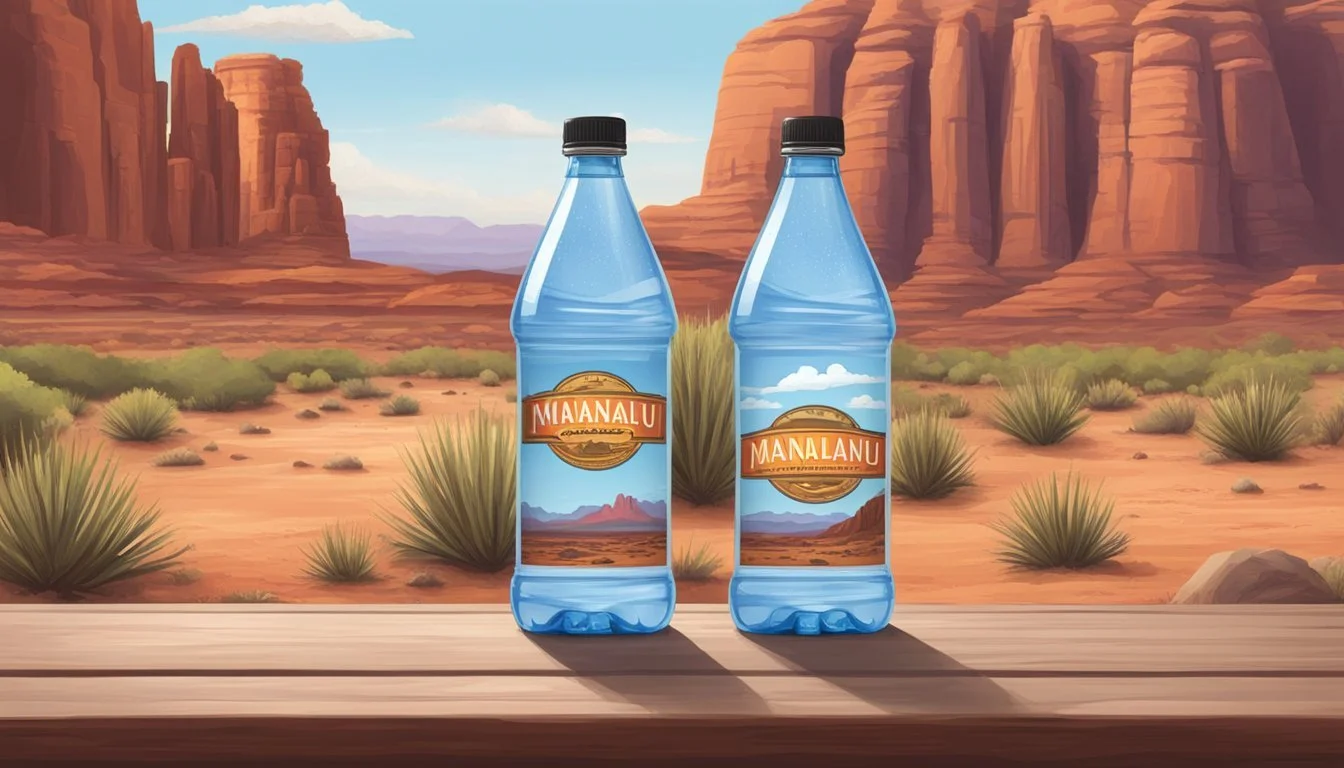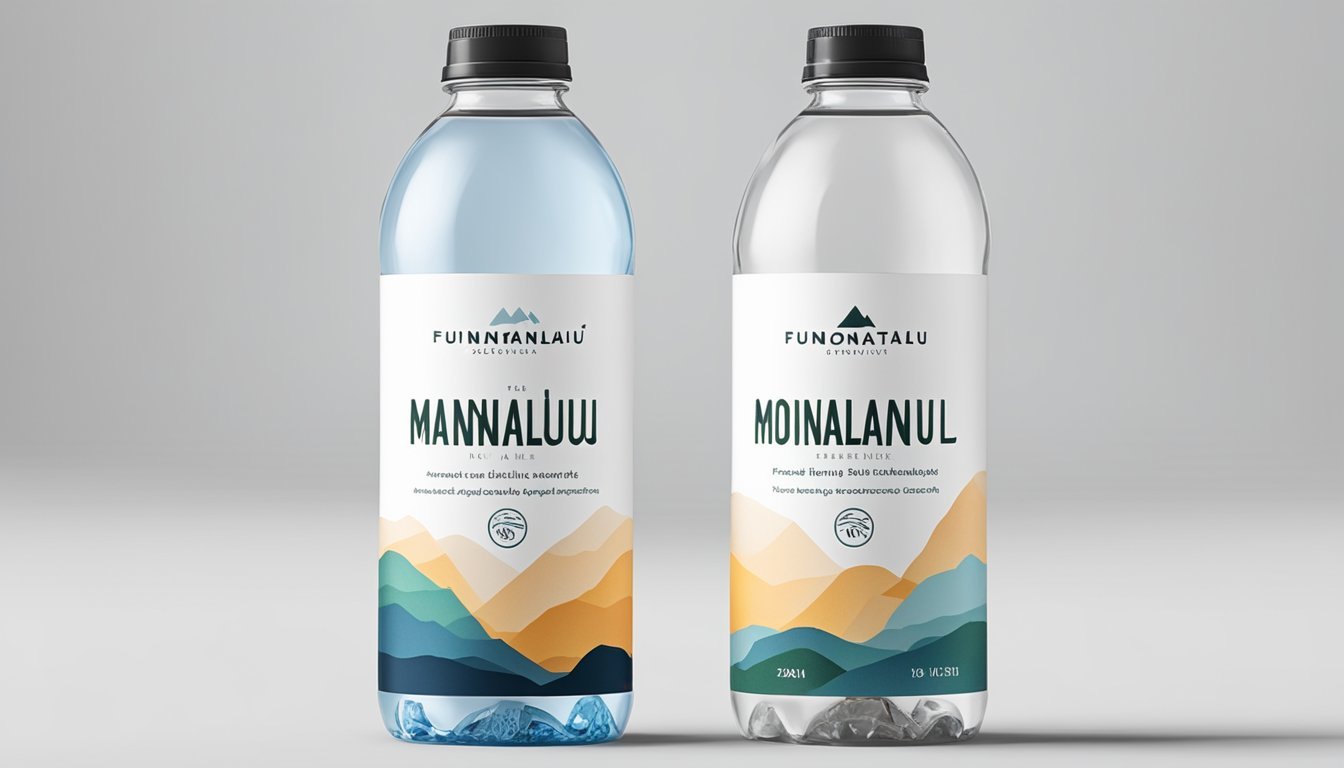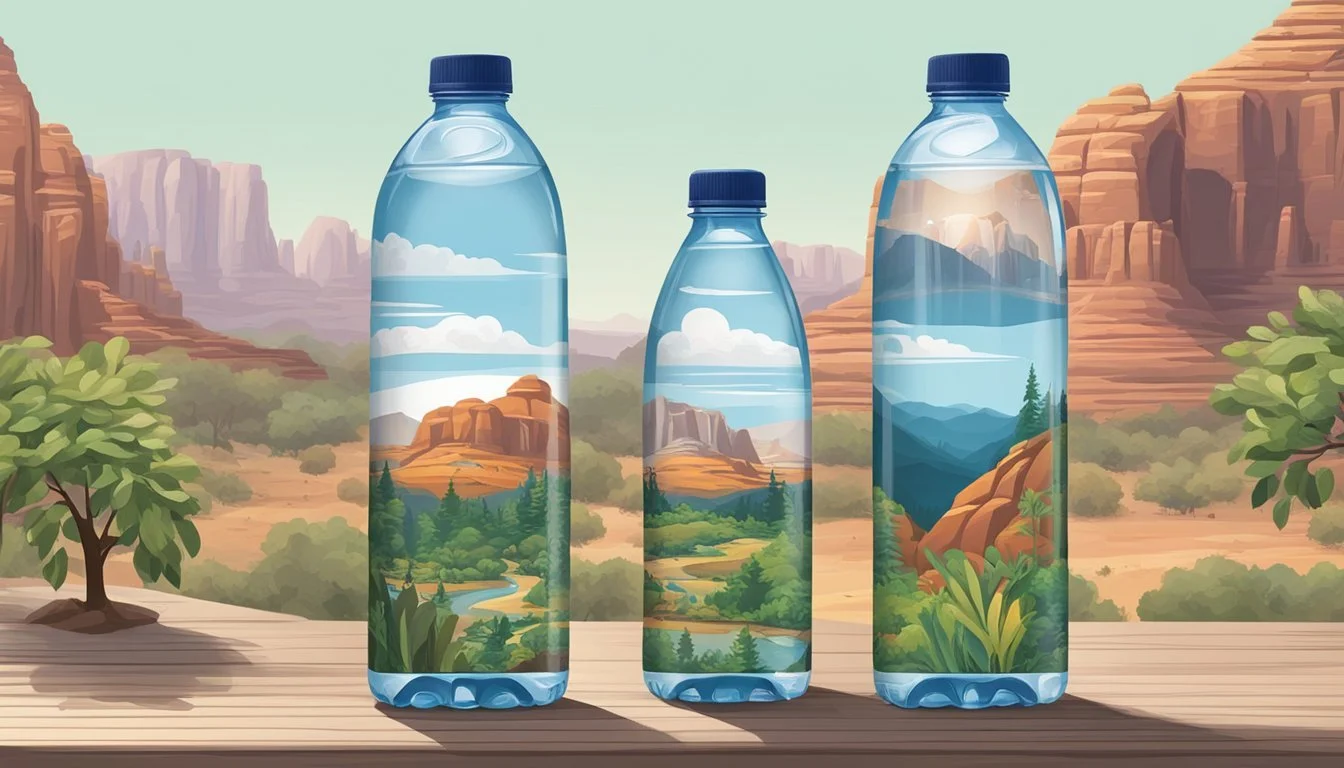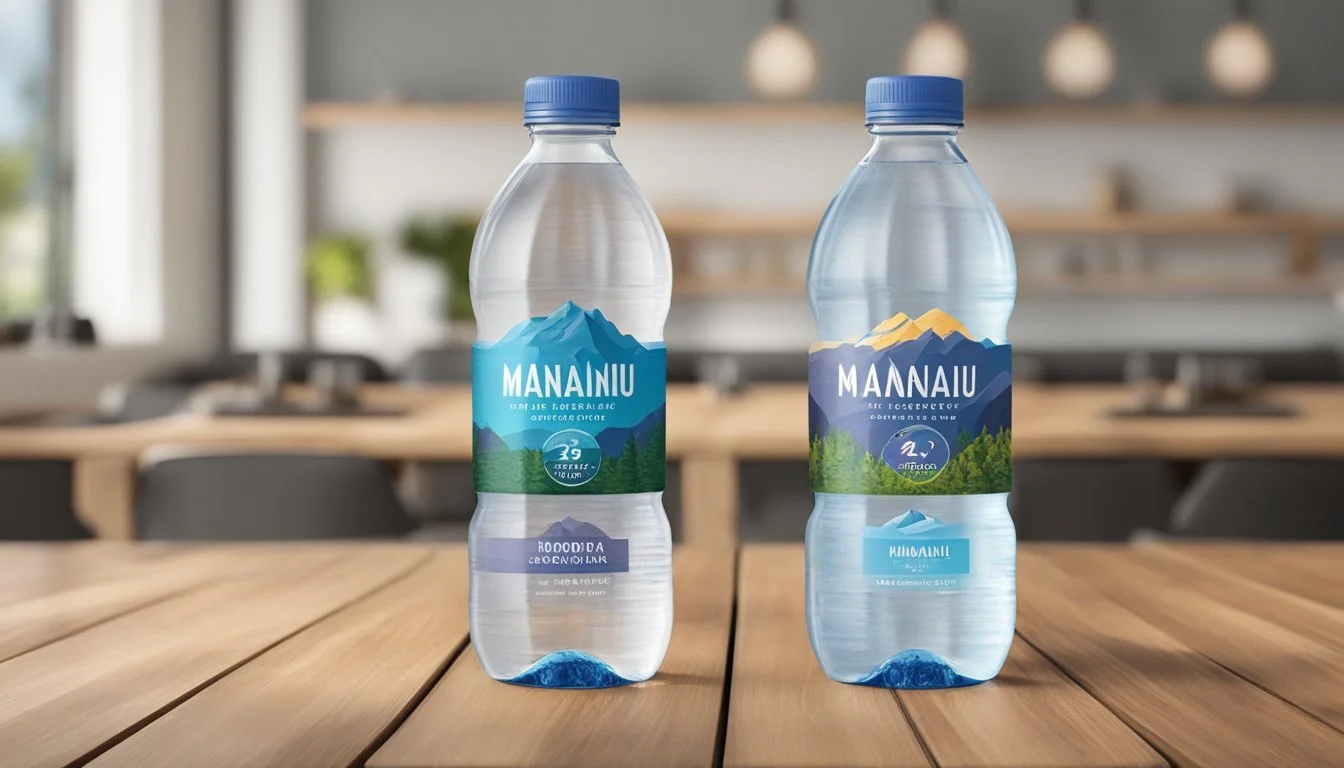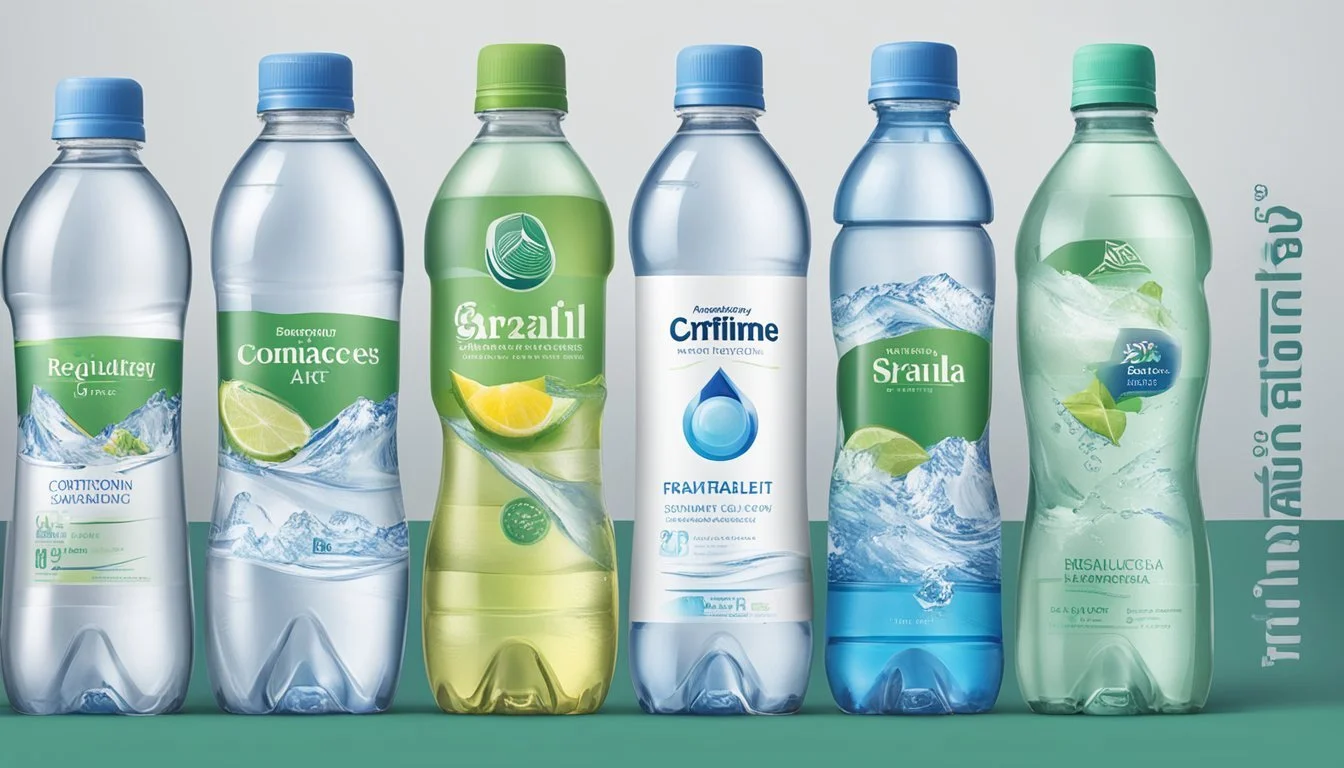Purely Sedona vs. Mananalu
A Comparative Analysis of Bottled Water
When it comes to premium bottled water brands, Purely Sedona and Mananalu are often the top contenders that consumers consider. Purely Sedona, known for its crisp taste and sourced from the pristine wells of Sedona, offers a distinct, refreshing experience. On the other hand, Mananalu stands out not just for its quality but for its commitment to sustainability, being one of the few brands that use recyclable aluminum bottles to reduce plastic waste.
Water quality and taste often drive consumers' choices between these two brands. Purely Sedona boasts a naturally balanced mineral content, which contributes to its smooth flavor profile. Mananalu, sourced from deep wells, provides a clean and pure taste with an added focus on eco-friendliness, making it a favorite among environmentally conscious consumers.
In the battle of Purely Sedona vs. Mananalu, preferences may lean toward either brand based on individual priorities like taste, mineral content, or sustainability efforts. For those prioritizing eco-friendliness, Mananalu's use of aluminum packaging can be a key differentiator. However, if taste and natural mineral balance are paramount, Purely Sedona might just edge ahead.
Comparing Bottled Water Fundamentals
This section will explore the differences between Purely Sedona and Mananalu, focusing specifically on their types, sources, and quality standards. The details provided will help readers understand the material aspects of each brand.
Bottled Water Types and Sources
Purely Sedona sources its water from natural springs in the Sedona region. It emphasizes purity and maintaining the natural minerals found in spring water. Spring water is known for its naturally occurring minerals and distinctive taste, often attracting consumers who seek a natural option.
Mananalu offers purified water that utilizes a comprehensive filtration process. Launched by Jason Momoa, the brand aims to reduce plastic waste by packaging water in recyclable aluminum cans. The water undergoes reverse osmosis and deionization to ensure high purity levels.
While Purely Sedona maintains the natural filtration process inherent to spring water, Mananalu emphasizes technological intervention to ensure purity. This fundamental difference distinguishes the brands in terms of both source and treatment methods.
Water Quality and Purity Standards
Purely Sedona is subjected to stringent safety standards to retain the natural elements essential for spring water. The brand adheres to regulations for natural spring water, ensuring minimal human intervention while maintaining microbial purity and balance of natural minerals. Its focus on local heritage also drives its commitment to maintain the pristine nature of its source.
Mananalu prioritizes high purity levels through advanced filtration techniques like reverse osmosis and deionization. These methods remove contaminants and impurities, resulting in water that meets rigorous quality standards. The water is free from potential impurities found in natural sources, making it an option for those particularly concerned with purification and safety.
The distinct approaches taken by Purely Sedona and Mananalu underscore their respective philosophies on water purity and consumer appeal. Purely Sedona’s natural approach contrasts with Mananalu’s technologically intensive purification process, offering distinct advantages depending on consumer priorities.
Mineral Content and Health Implications
The mineral content of bottled water can have significant health implications, affecting everything from hydration quality to electrolyte balance. This section will compare the mineral profiles of Purely Sedona and Mananalu and explore their health benefits.
Assessing Mineral Profiles
Purely Sedona and Mananalu have distinct mineral compositions that cater to different preferences and health needs. Purely Sedona is known for its naturally occurring mineral richness, attributed to the Oak Creek Canyon aquifer. It boasts a balanced pH of 8, containing key minerals such as calcium, magnesium, and potassium.
Mananalu, on the other hand, focuses on sustainability, offering purified water in recyclable aluminum cans. It features a cleaner mineral profile with lower levels of electrolytes. This brand is ideal for those looking for a straightforward hydration option without a high mineral content.
A comparison of key minerals in each brand:
Mineral Purely Sedona (mg/L) Mananalu (mg/L) Calcium 45 10 Magnesium 12 5 Potassium 3 0.5 Sodium 8 2
Health Benefits of Hydration
Hydration plays a crucial role in maintaining several bodily functions. The minerals found in Purely Sedona contribute to bone health, muscle function, and digestion. Calcium and magnesium are especially important for bone density and muscle contractions, respectively.
Mananalu’s lower mineral content makes it a good choice for those requiring minimal electrolyte intake, such as individuals with certain health conditions.
Electrolytes like sodium and potassium in Purely Sedona aid in nerve function and fluid balance, making this brand a valuable option for active, health-conscious consumers.
In contrast, Mananalu’s purified water ensures basic hydration, suitable for everyday consumption without added complexities of high mineral content. Each brand, therefore, caters to different hydration needs, making them suitable for distinct consumer preferences.
By understanding these differences, consumers can make informed choices about which brand best meets their specific health requirements.
Taste Profile and Consumer Preferences
Purely Sedona and Mananalu bring distinct flavor experiences to the table. Each brand caters to varying consumer preferences and contexts like fine dining or everyday use.
Sensory Experience of Water Tasting
Purely Sedona provides a crisp, refreshing profile due to its natural spring source and alkaline properties. It is often enjoyed in fine dining settings, enhancing the culinary experience.
Mananalu offers a clean, pure taste thanks to its purification process and low Total Dissolved Solids (TDS). Its eco-friendly packaging makes it popular among environmentally-conscious consumers. Both waters are appreciated by water sommeliers for their unique qualities.
In grocery stores, Purely Sedona is favored for daily hydration, while Mananalu is chosen for its sustainability mission and crisp taste.
Packaging Innovations and Environmental Impact
Purely Sedona and Mananalu demonstrate distinct approaches to packaging their bottled water, emphasizing sustainability. This examination will focus on their use of materials and the environmental implications of their choices.
Sustainable Packaging Solutions
Purely Sedona utilizes recyclable materials for its packaging. Their design includes using glass bottles, enhancing sustainability by reducing plastic waste. Glass is fully recyclable and can be reused repeatedly without losing quality.
Mananalu, founded by Jason Momoa, opts for recyclable aluminum cans instead of traditional plastic. Aluminum cans are highly recyclable and have a lower environmental impact compared to single-use plastics. This innovative choice helps significantly cut down on plastic waste in oceans and landfills, aligning with Mananalu’s mission to eliminate single-use plastic.
Environmental Considerations of Bottling
Both brands emphasize reducing the carbon footprint of their operations. Purely Sedona’s bottling at Sedona Bottling Company adheres to sustainable practices, aiming to conserve local resources and minimize waste. Using local resources also helps in reducing transportation emissions, contributing to a lower carbon footprint.
Mananalu’s use of aluminum further underscores their commitment to environmental sustainability. Aluminum recycling requires less energy than producing new aluminum, helping to reduce carbon emissions. Moreover, Mananalu’s choice of material signifies a push towards a circular economy, where materials are continuously reused, providing a sustainable solution in the bottled water market.
Brand Histories and Corporate Practices
Understanding the origins and corporate practices of Purely Sedona and Mananalu can provide insight into their market strategies and consumer appeal. Each brand highlights unique values, from local heritage to strong environmental missions.
Purely Sedona Brand Overview
Purely Sedona sources its water from a registered spring in Oak Creek Canyon, emphasizing purity and a local touch. The brand is positioned as a premium option while maintaining affordability as a key selling point.
Their marketing revolves around the pristine and untouched nature of Oak Creek, enhancing its image of purity.
Pricing strategies make Purely Sedona accessible to a broader audience, contrasting with higher-end brands like Acqua Panna.
Mananalu Brand Overview
Mananalu was founded by actor Jason Momoa with a clear mission of environmental sustainability. The brand offers purified water in 100% recyclable aluminum cans, aiming to reduce single-use plastic waste.
Mananalu’s commitment to sustainability reflects in their corporate practices, with efforts to create a plastic-free world.
The brand taps into Momoa's celebrity status and activism to bolster its market presence and appeal, particularly among environmentally conscious consumers.
Comparing Company Ethics and Missions
Purely Sedona focuses on purity and local heritage, sourcing water from Oak Creek Canyon and emphasizing affordability.
By contrast, Mananalu's mission centers around environmental sustainability, offering water in recyclable aluminum cans and aiming to eliminate single-use plastics.
Both brands demonstrate strong corporate social responsibility, but their approaches differ: Purely Sedona highlighting local purity, and Mananalu promoting global environmental impact.
Each company’s ethics reflect their market strategies and consumer engagement practices, catering to different segments of the bottled water market.
Cost Analysis and Consumer Accessibility
Purely Sedona offers a more budget-friendly option compared to Mananalu. Additionally, their market distribution varies, with distinct differences in retail presence and global reach.
Evaluating the Price Points
Purely Sedona ranges from $1.50 to $3.00 per bottle, making it accessible for cost-conscious consumers. This affordability plays a significant role in its popularity among diverse buyer segments, particularly those looking for premium quality without the premium price.
Mananalu, in contrast, typically falls within a higher price range. Although specific numbers are less prominently available, its focus on purified, contaminant-free water positions it as a premium product. This often reflects in higher price points compared to more budget-friendly alternatives like Purely Sedona.
Availability and Market Distribution
Purely Sedona enjoys a broad retail presence, readily available in a variety of grocery stores and other retail locations. This makes it convenient for consumers to find and purchase, contributing to its widespread accessibility and appeal.
Mananalu, while marketed as a premium bottled water, tends to have a more selective distribution. It may not be as widely available in all regions, targeting markets that prioritize eco-friendly and purified water options. Its retail presence is more focused on specialty stores rather than common grocery outlets.
In summary, Purely Sedona's affordability and widespread availability make it a practical choice, whereas Mananalu's higher price and selective distribution cater to a niche market segment.
Regulatory Compliance and Safety
Both Purely Sedona and Mananalu prioritize adhering to stringent regulatory standards to ensure their bottled water is safe and of high quality. They follow specific guidelines during their manufacturing and bottling processes to meet health and safety requirements.
Water Safety and Regulatory Guidelines
Purely Sedona and Mananalu both comply with FDA regulations for bottled water. These standards ensure that the water is comparable to tap water in terms of safety and purity. Purely Sedona emphasizes its commitment to using locally sourced water, which is meticulously tested for contaminants before bottling.
Mananalu follows a mission-driven approach, focusing on environmental sustainability. Their water is purified and tested to be free from contaminants, ensuring it meets safety standards. The use of 100 percent recyclable aluminum cans also complies with environmental regulations.
Bottling Processes and Quality Control
Purely Sedona utilizes a thorough bottling process that includes rigorous quality control measures. Water undergoes multiple filtration stages before it is bottled. The process ensures that the final product maintains a high level of purity and adheres to the production standards set by regulatory bodies.
Mananalu’s bottling process emphasizes quality and environmental sustainability. The water, purified before packaging, is filled into aluminum cans designed to eliminate plastic waste. Mananalu consistently monitors each stage of its bottling line to maintain its commitment to quality and environmental compliance.
Both brands demonstrate a firm commitment to safety and regulatory compliance, ensuring consumers receive the highest quality bottled water.

